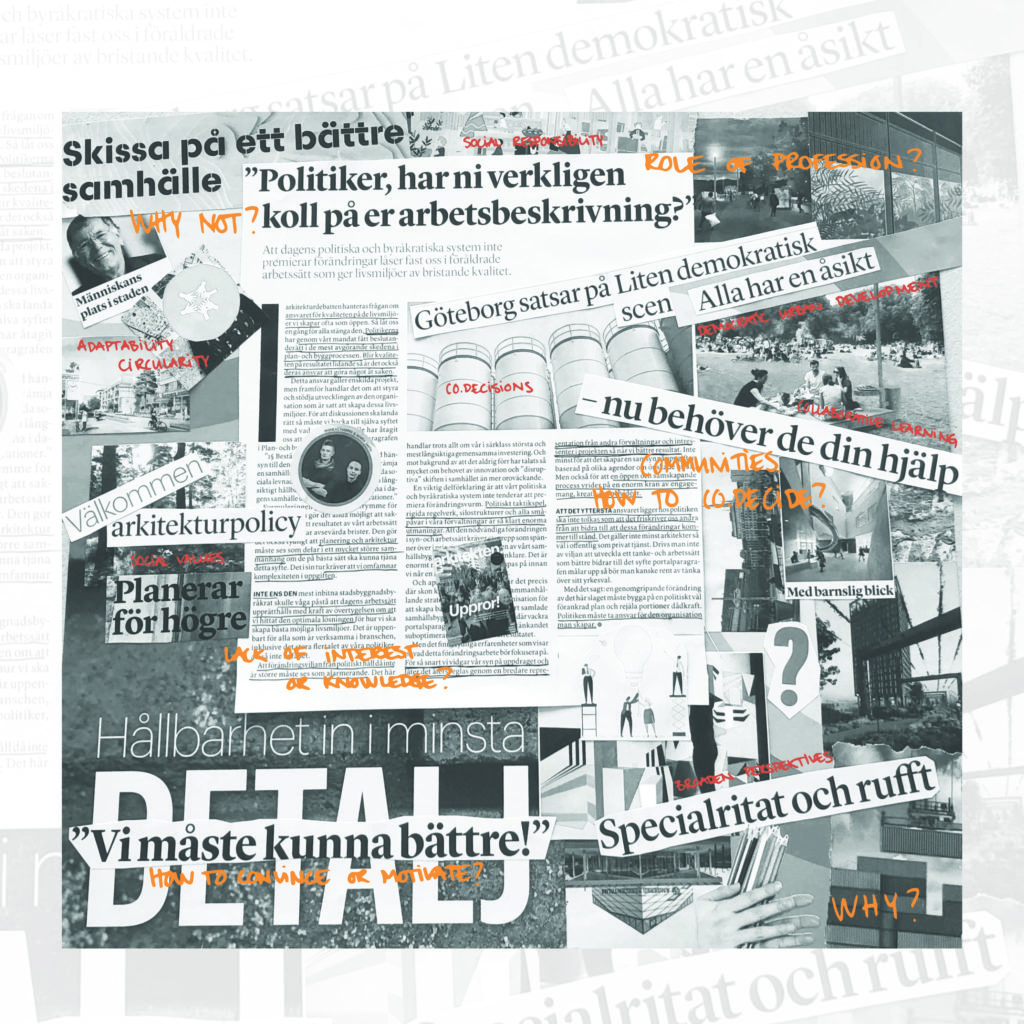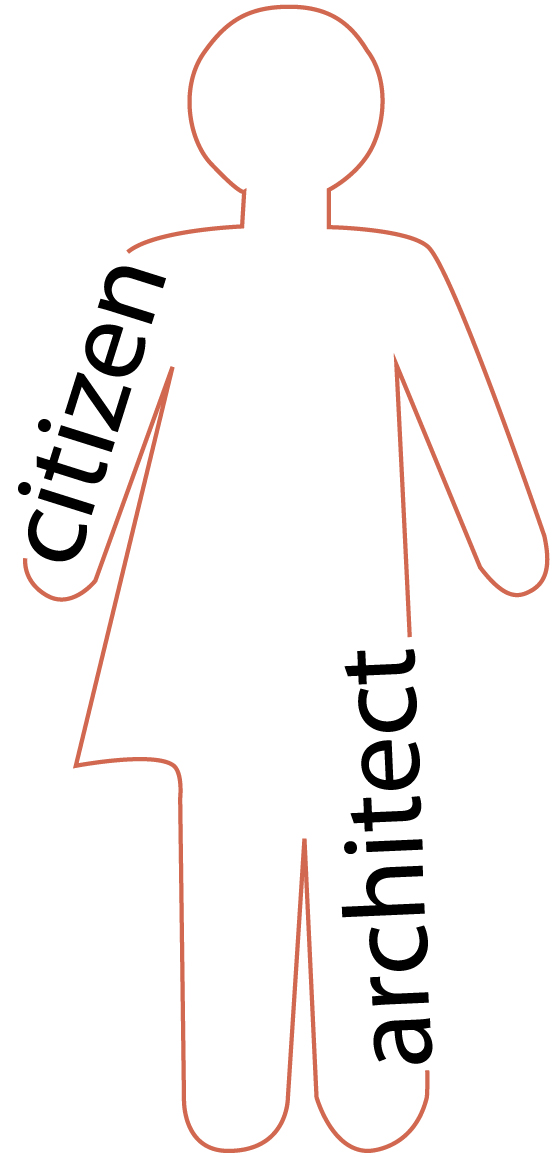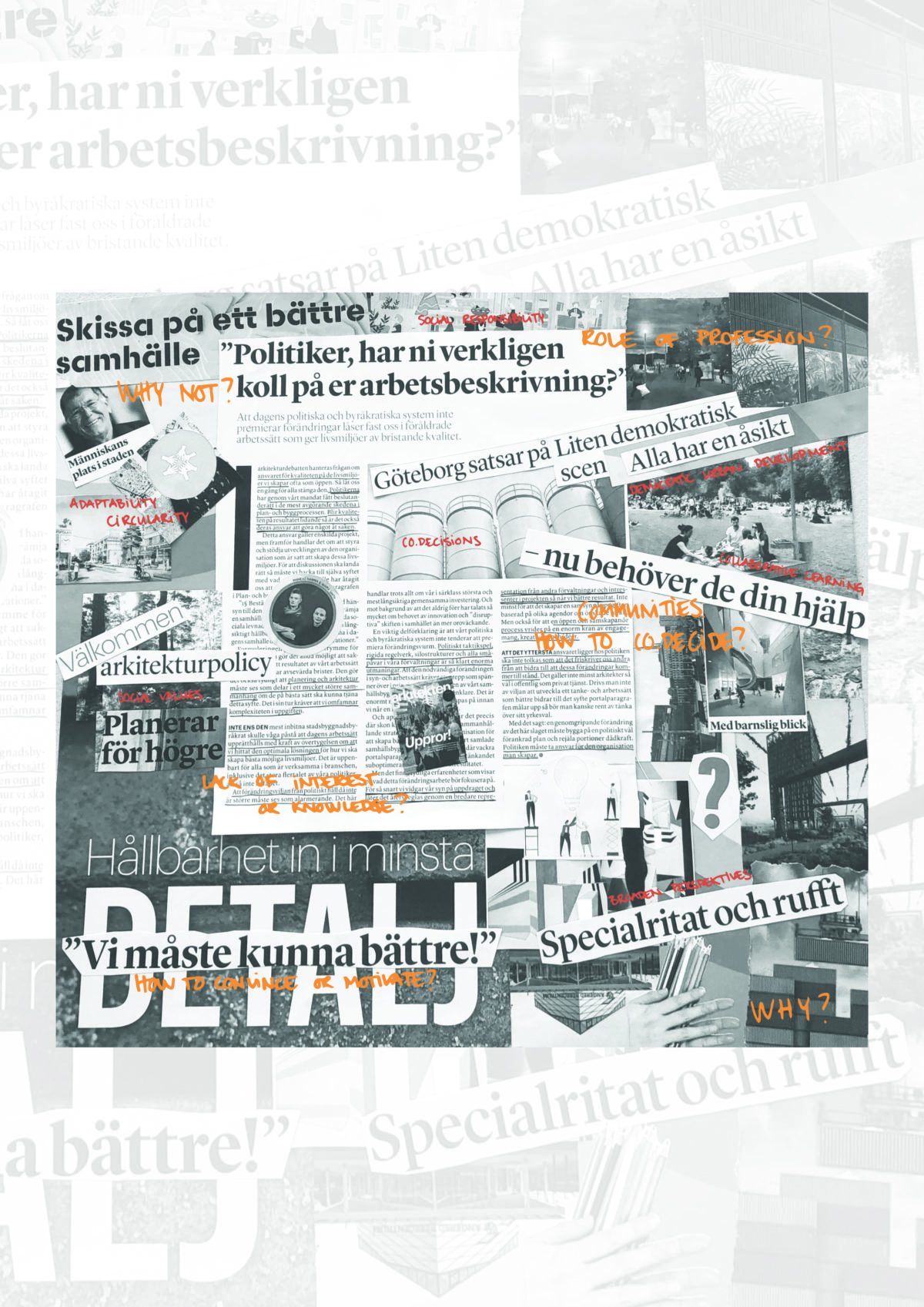The political and structural environment are challenges when working with co.creation within a municipality. Processes tend to be inflexible and very time consuming, because of regulations and passing through several Administrations before an idea can become reality. It also appears to be individual based and up to each civil servant to what extend social issues are taken into consideration or get prioritised. Some civil servants in Gothenburg have expressed a fear or hesitation of working with extended dialogues and citizen participation. It would be interesting to delve deeper into and find out why. Is it due to a personal lack of interest from the civil servant? Or is it because of too many obstacles which require more work and effort? Or can simply lack of competence for extended dialogues and citizen participation be a factor which makes them hesitate? In a city like Gothenburg, with a political priority to reduce segregation, it is remarkable that citizen participation and influence is so limited. As a municipality, Gothenburg City has not only the opportunity but also the obligation to invest in social values. But, what is needed or what does it take for co.creation to become a matter of course in urban planning praxis? Further research into the political and structural environment could explore those questions and improve the co.creation process model and possibilities for implementation further.

The process model suggested in this thesis was developed with Gothenburg City in mind but is applicable in other contexts. It was created with the intention to support civil servants to work with co.creation and strengthen the level of citizen influence in the development of public spaces. Depending on individual and specific situation or interests, it is possible to improve the model further, adapted to other conditions and contexts. It is essential to not forget the importance of circularity and repetition; to build trust, develop the process, adapt to changing conditions and to learn from gained experiences and each other. Co.creation can be seen as a learning process for the communities and stakeholders involved, where insight in each other’s perspective can generate better co.decisions and thereby also results. This collaborative learning process can hopefully also broaden perspectives and attitudes from people involved, that inspire and influence other projects and processes, and also generate a greater understanding of what a democratic urban development is.
For me, co.creation is also a philosophy and a mindset. It is a complex concept and there are a wide spectrum of material, models, tools and guidance’s of how to work with co.creation and participation. The huge amount of material can somewhat be difficult to navigate but is up to each individual to develop their own working model and toolbox. The intention with this thesis is to add another layer to the concept and ease the understanding and hence implementation of co.creation processes. There is also a hope that this thesis generate an interest for the reader to further explore co.creation and maybe be motivated or inspired to engage in co.creation projects.
Working with co.creation is also about to question the role of the profession. It takes architects, engineers and planners out of their comfort zone – from the drawing table out to new, practical and more creative processes in cross-disciplinary collaborations. It is about having one’s expertise, but be open to input and new methods of working with design and development. For professionals to support a democratic urban development it is about taking social responsibility and find out ways to best support citizens having the freedom and ability to shape their own lives. This challenges us to think new and reformulate the discipline through innovative constellations that inspire to other and different agendas and expectations of the profession.

Exploring co.creation increased my personal interest and awareness,
and triggered a curiosity to see what a society can become
– if more people shared the privilege to build.
1. introduction
2. theoretical framework
3. case study: Gothenburg City
4. co.creation process model
5. reflections & discussion
